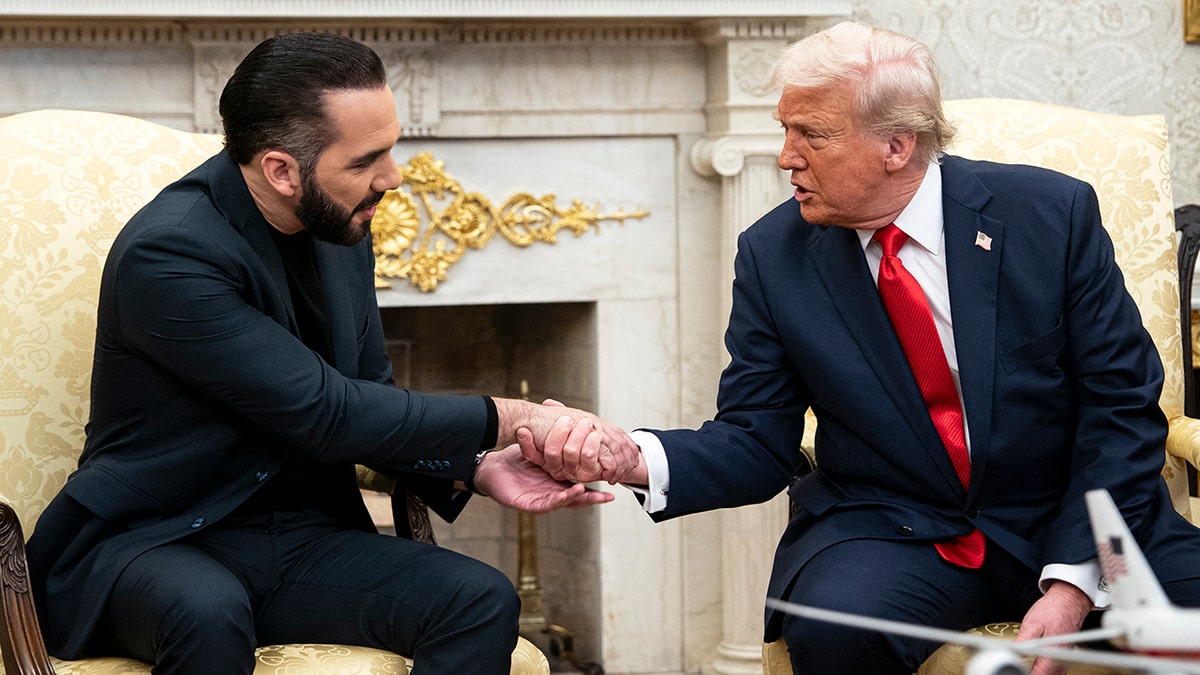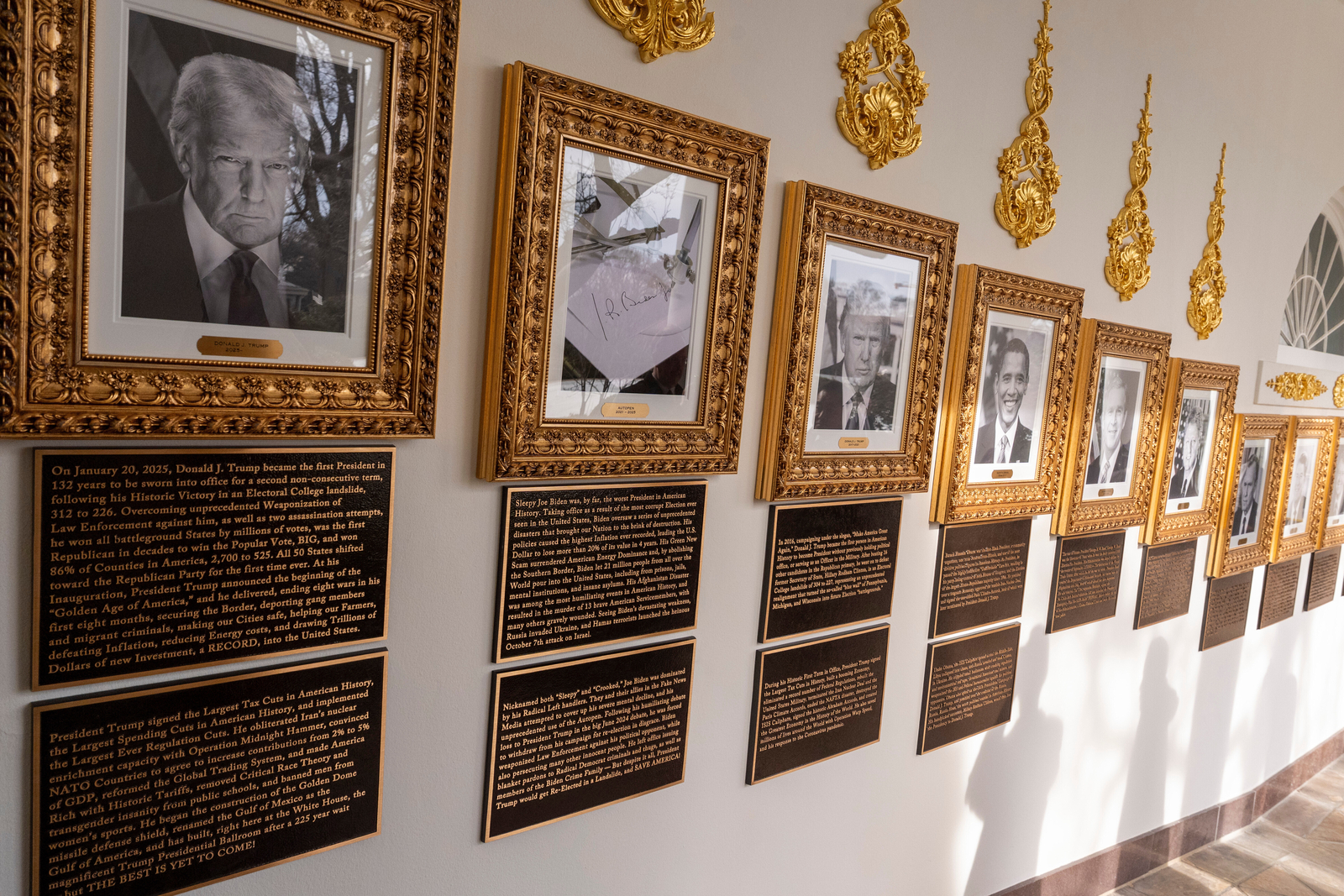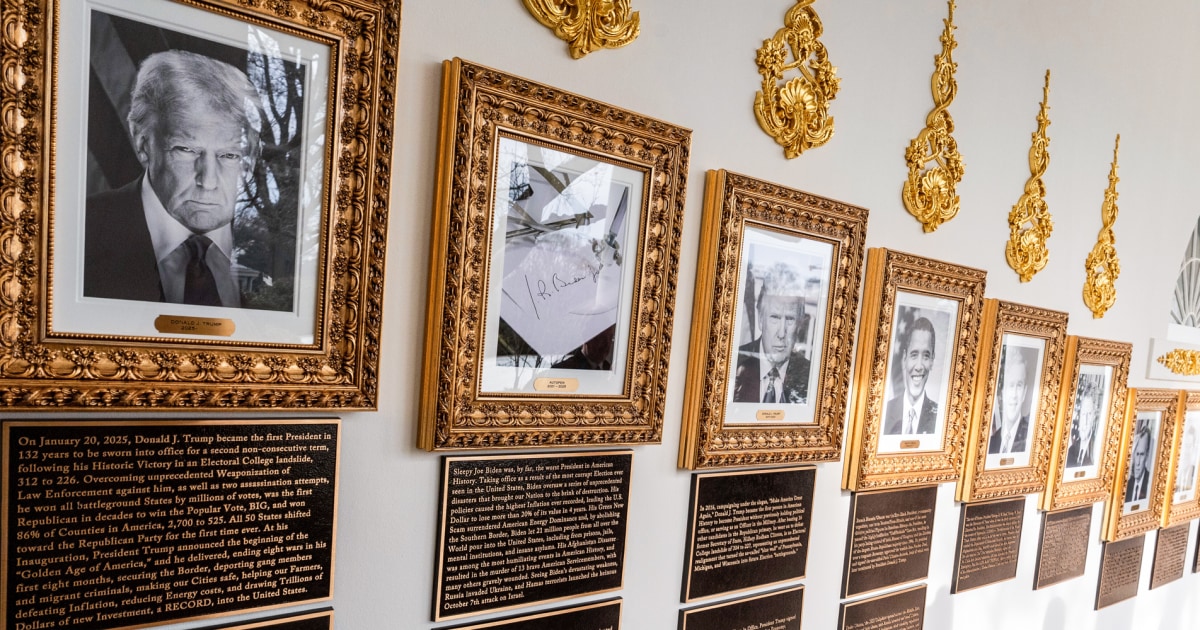The Controversial Alliance Between Salvadoran President Bukele and President Trump
#salvadoran president #nayib bukele #president trump #deported venezuelans #controversy

About the People Mentioned
Donald Trump
Donald John Trump, born June 14, 1946, in Queens, New York, is an American businessman, media personality, and politician. He graduated from the University of Pennsylvania’s Wharton School in 1968 with a degree in economics. In 1971, he took over his family’s real estate business, renaming it the Trump Organization, through which he expanded into building and managing skyscrapers, hotels, casinos, and golf courses. Trump gained widespread fame as the host of the reality TV show *The Apprentice* from 2004 to 2015, which helped establish his public persona as a successful entrepreneur. Trump entered politics as a Republican and was elected the 45th president of the United States, serving from 2017 to 2021. His presidency was marked by significant policy actions including tax cuts, deregulation, the appointment of three Supreme Court justices, renegotiation of trade agreements (notably replacing NAFTA with the USMCA), and a focus on immigration control including border wall expansion. He withdrew the U.S. from international agreements such as the Paris Climate Accord and the Iran nuclear deal, and engaged in a trade war with China. His administration’s response to the COVID-19 pandemic was criticized for downplaying the virus’s severity. Trump was impeached twice by the House of Representatives—first in 2019 for abuse of power and obstruction, and again in 2021 for incitement of insurrection—but was acquitted by the Senate both times. After losing the 2020 election to Joe Biden, Trump challenged the results, culminating in the January 6, 2021, Capitol riot. He remains a central figure in American politics, having won the 2024 presidential election and returned as the 47th president in 2025, continuing to promote policies aimed at economic growth, border security, and military strength[1][2][3][4].
Nayib Bukele
Nayib Armando Bukele Ortez, born July 24, 1981, in San Salvador, is the current president of El Salvador, serving since 2019[2][3]. He is the son of a wealthy entrepreneur of Palestinian descent, Armando Bukele, and grew up in a privileged environment[4][5]. Bukele began his career in business, managing a Yamaha dealership and a nightclub before entering politics in 2011[4]. His political rise was rapid: elected mayor of the small town of Nuevo Cuscatlán in 2012 as a member of the leftist Farabundo Martí National Liberation Front (FMLN), he then became mayor of San Salvador in 2015, where he gained popularity for urban revitalization projects and a strong social media presence[3][4]. Bukele’s relationship with the FMLN soured over allegations of corruption and internal disputes, leading to his expulsion from the party in 2017[3][4]. Undeterred, he founded his own political movement, Nuevas Ideas (New Ideas), and, after legal obstacles, ran for president in 2019 with the Grand Alliance for National Unity (GANA), winning with 53% of the vote[2][3]. At 37, he became the youngest elected president in Latin American history, ending decades of dominance by the FMLN and the conservative Nationalist Republican Alliance (ARENA)[3]. As president, Bukele quickly consolidated power, using his party’s legislative majority to remove Supreme Court justices and the attorney general, actions widely criticized as undermining judicial independence and democratic checks and balances[1][6]. He gained international attention—and controversy—for his hardline “iron fist” policies against gangs, notably the 2022 crackdown that led to over 85,000 arrests amid allegations of widespread human rights abuses[2][5]. Domestically, he remains highly popular, with approval ratings often exceeding 90%, credited with reducing crime but criticized for eroding civil liberties and press freedoms[2][5]. Bukele was re-elected in February 2024 with 85% of the vote, a result enabled by a controversial constitutional reinterpretation allowing consecutive presidential terms[2]. His administration continues to prioritize security and economic modernization, while facing ongoing scrutiny from international human rights organizations over democratic backsliding[6]. Bukele’s blend of millennial charisma, social media savvy, and authoritarian tendencies has made him a polarizing figure both at home and abroad, emblematic of a new style of leadership in Latin America[4][5].
About the Organizations Mentioned
Washington
The organization "Washington" in the context of your query most accurately refers to the **Washington State Government**, a comprehensive state-level governing body responsible for implementing laws, managing public resources, and serving the citizens of Washington State. It operates through three branches—executive, legislative, and judicial—that mirror the federal government’s structure to ensure checks and balances[1][2]. The **executive branch** is headed by the governor and includes other elected officials such as the attorney general, secretary of state, and treasurer. This branch enforces laws and manages day-to-day state operations, including overseeing various departments and agencies that cover sectors like natural resources, education, and public safety[1][4]. The governor wields significant powers, including military command over the state’s National Guard, veto authority (including line-item vetoes), and the ability to issue pardons[1][2]. The **legislative branch** comprises a bicameral legislature: the Senate (49 members with four-year terms) and the House of Representatives (98 members with two-year terms). It is responsible for creating laws, with certain restrictions such as earmarking funds for specific purposes and allowing voter initiatives, referenda, and recall elections to maintain public control over governance[2]. The legislature also includes committees and support offices that facilitate lawmaking and oversight[4][5]. The **judicial branch** includes multiple levels of courts, from local courts handling minor cases to the Supreme Court and appellate courts reviewing decisions. Judges are mostly elected on nonpartisan ballots to maintain judicial independence, with grand juries primarily investigating political corruption[2][4]. Historically, Washington’s constitution, adopted in 1889, formed the basis of its government, reflecting a cautious approach to state power with a divided executive and numerous checks on authority[2]. Over time, the state government has expanded and modernized its operations, now supported by detailed organizational charts and resources that provide transparency and public access to information[4][5
U.S.
The term "U.S." typically refers to the United States government, a complex federal organization established by the Constitution to govern the country through three branches: legislative, executive, and judicial. This separation of powers ensures a system of checks and balances to prevent any one branch from gaining too much control[1][3][8]. **What the U.S. government does:** The government is responsible for creating and enforcing laws, conducting foreign policy, managing national defense, administering justice, and providing public services across diverse sectors including health, education, and infrastructure. It operates through multiple agencies and departments that implement policies and programs affecting citizens’ daily lives[3][6]. **History:** Founded in 1789, the U.S. government’s structure is rooted in the Constitution, which created a federal system balancing power between national and state authorities. Over more than two centuries, it has evolved to meet changing political, social, and technological challenges, exemplified by the enduring publication of the *United States Government Manual* since the New Deal era[3][9]. **Key achievements:** The U.S. government has played a critical role in shaping global democracy, promoting civil rights, pioneering technological innovation, and fostering economic growth. Landmark legislation and executive actions have addressed healthcare reform, environmental protection, and technological advancement. Recent administrations continue to impact sectors like technology, health, and taxation through executive orders and budget reconciliation processes[4][5]. **Current status:** As of 2025, the U.S. government remains a vast and multifaceted institution with approximately thousands of state and local government units documented by the Census Bureau, reflecting its scale and complexity[2]. Contemporary challenges include adapting governance to rapid technological changes, maintaining public trust, and managing policy across federal and state lines. **Notable aspects:** The government’s commitment to transparency is demonstrated through publicly accessible resources like the *Government Manual* and detailed organizational charts. Its federal structure facilitates responsive governance while balancing power through constitutional check


















